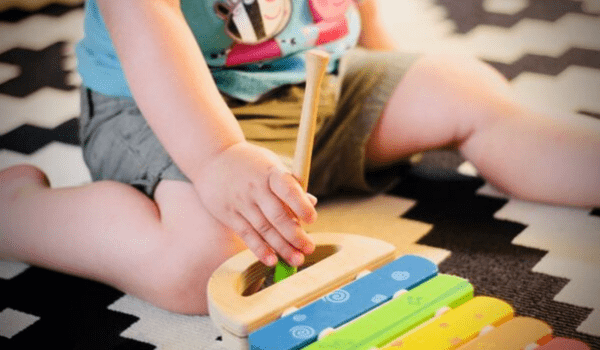When your child with pediatric eczema leaves for school, you don’t have the same control over their environment that you do at home. So, with back to school season upon us, it’s vital to make sure that both you and your child know what steps they can take to keep itchy flares and other problems under control. Below are some tips that you can follow to make sure they’re prepared to handle any reactions with their pediatric eczema while at school.
Pediatric Eczema Tip #1: Check out your child’s school environment.
The first pediatric eczema tip you can follow is to check out your child’s school and classroom. Visiting their school can ease your mind and let you become familiar with the environment. It also allows you to make sure your child’s teachers are aware of their condition. It’s important to know how they can avoid possible reactions. For example, if you notice anything in their classroom that could cause a flare-up (like plush carpeting or stuffed animals), it’s a good idea to let the faculty know about it. In this case, they can make the proper accommodations. Because you can’t be there to help your child all of the time, it’s important to make sure they’re in a safe environment with trusted people who can help in cases of emergency.
Pediatric Eczema Tip #2: Talk to your child’s teachers and nurse.
As mentioned in the last tip, it’s important that while visiting your child’s school, you talk to their teachers to let them know about your child’s condition. This is also a good time to discuss any medicine they might need. It’s also a great idea to talk to the school nurse and leave some extra medicine with them in case of any problems. This way, if your child starts to show signs of a flare-up like itchiness or difficulty breathing, their teacher will immediately know what the situation is and what steps they can take to help. Also, if your child does have to go to the nurse, this ensures that the faculty there are fully prepared.
Pediatric Eczema Tip #3: Make sure your child is prepared with treatments and supplies.
Along with supplying the school with medicine, another great pediatric eczema tip is to send your child off with any important treatments that they’ll want to use on their own. For example, if the school’s soap or hand sanitizer aggravates your child’s skin, you can make sure that your child is prepared and has their own supply of things. This can include a gentle cleanser or petroleum jelly. If possible, you can even talk to their teachers and get them to use products that you know are fine to use around your child. This will make sure that they stay safe and use the same products at school that they do at home in order to avoid any reactions.
Pediatric Eczema Tip #4: Avoid known triggers or allergies.
Unfortunately, eczema and food allergies can often go hand-in-hand. This makes the school cafeteria another risky place for your child to be. If your child has any known allergies or triggers, it’s very important to make sure that the school, or at least the classroom, remains free of anything that could cause a reaction. For example, if your child has a peanut or latex allergy, make sure the school knows to take necessary precautions. You should also ensure that your child knows to avoid it. It’s also important to have their classroom post signs prohibiting any materials your child might be allergic to, just to be safe and protect from any accidents.
For more information on pediatric eczema or other skin conditions, check out our blog post on 7 common skin conditions parents should know. You can schedule an appointment with our board-certified pediatric dermatologist, Dr. Elizabeth Froelich, for any other concerns or questions.
Vujevich Dermatology Associates offers medical, surgical, and cosmetic dermatology from some of the most highly trained physicians and clinicians in the greater Pittsburgh area. You can reach our team at 412-429-2570 or visit our contact page to see all of our locations. You can also follow us on Facebook to see what’s new in the world of dermatology.

